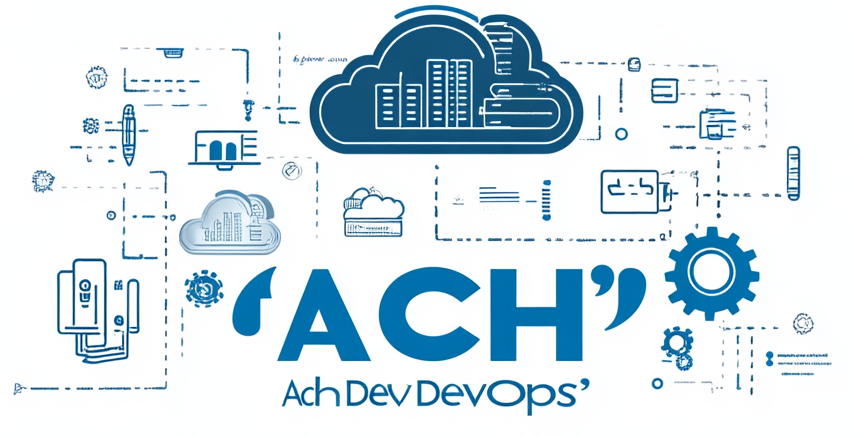Introduction
Artificial Intelligence for IT Operations (AIOps) is rapidly emerging as a transformative force in IT management, leveraging artificial intelligence (AI) and machine learning (ML) to automate and enhance various aspects of IT operations. As organizations increasingly adopt AIOps, its potential to revolutionize the management of IT systems becomes more evident. This article explores the future of AIOps and its implications for DevOps and IT management, focusing on its potential to drive efficiency, innovation, and strategic decision-making.
1. The Evolution of AIOps
A. From Reactive to Proactive IT Management
Traditional IT operations often rely on reactive approaches, responding to incidents after they occur. AIOps shifts this paradigm by enabling proactive management through predictive analytics and anomaly detection. By analyzing vast amounts of data from IT systems, AIOps can identify potential issues before they impact users, allowing teams to address them preemptively.
B. Integration with DevOps Practices
AIOps seamlessly integrates with DevOps, enhancing continuous integration and continuous delivery (CI/CD) pipelines. It provides real-time insights into application performance and infrastructure health, enabling DevOps teams to make informed decisions and optimize deployment strategies. This integration facilitates a more agile and responsive approach to software development and operations.
2. The Future of AIOps: Key Trends and Innovations
A. Advanced Predictive Analytics and Automation
The future of AIOps lies in the advancement of predictive analytics and automation capabilities. As AI and ML algorithms become more sophisticated, AIOps platforms will be able to predict more complex scenarios, such as identifying the optimal time for system maintenance or anticipating resource bottlenecks. This predictive power will enable organizations to optimize resource allocation, reduce downtime, and improve overall system performance.
B. Enhanced Decision Support Systems
AIOps will increasingly act as a decision support system for IT management, providing actionable insights and recommendations. For instance, AIOps can analyze data trends and suggest changes to infrastructure configurations, scaling strategies, or security measures. This capability will empower IT leaders to make data-driven decisions that align with business objectives.
C. Integration with Business Intelligence (BI)
Future AIOps platforms are expected to integrate more closely with business intelligence (BI) systems. This integration will allow organizations to correlate IT performance metrics with business outcomes, providing a holistic view of how IT operations impact business success. For example, understanding the relationship between system uptime and customer satisfaction can help prioritize IT investments.
D. Autonomous IT Operations
As AIOps matures, the concept of autonomous IT operations will become more prevalent. Autonomous operations involve minimal human intervention, with AIOps systems taking on more responsibilities for managing and optimizing IT infrastructure. This includes self-healing capabilities, where AIOps can automatically resolve issues without human input, further reducing downtime and operational costs.
3. The Impact of AIOps on IT Management
A. Efficiency and Cost Reduction
AIOps offers significant potential for improving efficiency and reducing costs in IT management. By automating routine tasks and optimizing resource utilization, AIOps can help organizations reduce operational expenses. Moreover, the proactive identification and resolution of issues can minimize downtime, leading to cost savings and enhanced service availability.
B. Enhanced Security and Compliance
AIOps can play a crucial role in enhancing IT security and ensuring compliance with regulations. By continuously monitoring for security threats and vulnerabilities, AIOps can quickly detect and respond to potential breaches. Additionally, AIOps can automate compliance checks, ensuring that systems adhere to industry standards and regulatory requirements.
C. Strategic Focus and Innovation
With AIOps handling routine and time-consuming tasks, IT teams can focus more on strategic initiatives and innovation. This shift allows organizations to invest in new technologies, improve service offerings, and develop innovative solutions that drive business growth.
4. Challenges and Considerations
A. Data Privacy and Ethical Concerns
As AIOps platforms process large volumes of data, concerns about data privacy and ethical considerations arise. Organizations must ensure that data is handled responsibly and that AI algorithms are transparent and free from bias. Adhering to data protection regulations and implementing robust data governance frameworks will be crucial.
B. Skill Development and Change Management
The adoption of AIOps requires specialized skills in AI, ML, and data analytics. Organizations may face challenges in training existing staff or hiring new talent with the necessary expertise. Additionally, integrating AIOps into existing workflows may require significant change management efforts to ensure smooth adoption.
Conclusion
AIOps represents the next frontier in DevOps and IT management, offering transformative potential for improving efficiency, security, and innovation. As AI and machine learning technologies continue to evolve, AIOps platforms will become more sophisticated, enabling autonomous IT operations and providing deeper insights into IT and business performance. However, to fully realize the benefits of AIOps, organizations must address challenges related to data privacy, skill development, and change management. By doing so, they can harness the power of AIOps to revolutionize their IT operations and drive business success.
